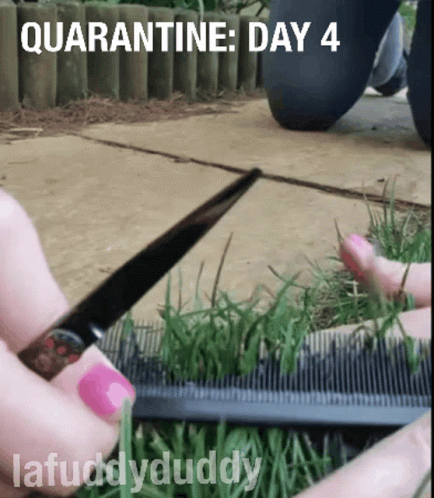La familia es una parte fundamental de nuestra vida, un lugar donde buscamos refugio, apoyo y amor. Sin embargo, a veces dentro de este entorno tan importante, pueden surgir relaciones tóxicas que pueden afectar gravemente nuestro bienestar emocional y mental. Es en estos casos donde es necesario tomar medidas para preservar nuestra salud y encontrar la paz que merecemos.

Es importante entender que la familia también se puede podar, de la misma manera que podamos un árbol para mantenerlo sano y equilibrado. Algunas personas dentro del núcleo familiar pueden ser tóxicas, ya sea por sus comportamientos, actitudes o incluso por su forma de comunicarse. Estas interacciones negativas pueden generar estrés, ansiedad, depresión y un profundo malestar que puede afectar nuestra calidad de vida.
Uno de los primeros pasos a dar es reconocer que hay un problema y que es necesario tomar medidas para solucionarlo. Muchas veces, nos cuesta admitir que hay miembros de la familia que son tóxicos, ya que se supone que la familia debe ser un lugar de apoyo y amor incondicional. Sin embargo, debemos ser honestos con nosotros mismos y entender que no todas las relaciones familiares son saludables.
Una vez que hemos identificado el problema, es importante establecer límites claros y firmes. Esto puede implicar evitar ciertos temas de conversación, alejarnos físicamente de la persona tóxica o incluso cortar el contacto por completo. Debemos priorizar nuestro bienestar y no sentirnos culpables por tomar estas medidas. Nuestra salud mental y emocional son lo más importante.

Además, es crucial trabajar en nuestra propia sanación. Esto puede incluir terapia individual, práctica de mindfulness, ejercicio físico y actividades que nos ayuden a relajarnos y encontrar la paz interior. Es importante no culparnos por la situación y aprender a perdonar, tanto a nosotros mismos como a los demás.
Otra estrategia útil puede ser buscar apoyo en otros miembros de la familia que sean sanos y positivos. Rodearnos de personas que nos brinden amor, comprensión y aceptación puede ser una forma de contrarrestar los efectos negativos de las relaciones tóxicas.
Es importante recordar que establecer límites y priorizar nuestro bienestar no significa que dejemos de amar a nuestra familia. Simplemente es una forma de cuidarnos y protegernos, para poder mantener relaciones saludables y significativas dentro del núcleo familiar.
Establecer límites saludables dentro de la familia es fundamental para preservar nuestro bienestar emocional y mental. A menudo, las relaciones familiares pueden tornarse complicadas y es necesario aprender a manejar estas situaciones de una manera constructiva.
Es importante entender que poner límites no significa dejar de amar a nuestra familia. Por el contrario, establecer límites claros y respetarlos es una muestra de amor propio y de cuidado hacia nosotros mismos. Cuando permitimos que los demás crucen nuestros límites, estamos enviando el mensaje de que sus necesidades son más importantes que las nuestras, lo cual puede llevarnos a sentirnos resentidos, abrumados y hasta manipulados.
Uno de los primeros pasos es identificar cuáles son esos límites que necesitamos establecer. Esto puede incluir temas de conversación que no queremos abordar, conductas que no estamos dispuestos a tolerar o incluso la cantidad de tiempo que pasamos con ciertos familiares. Una vez que tenemos claros nuestros límites, es crucial comunicarlos de manera asertiva y firme.
Muchas veces, los miembros de la familia pueden resistirse a estos límites, intentando presionarnos o manipularnos para que cedamos. Es en estos momentos donde debemos mantenernos firmes y no ceder ante la presión. Podemos explicar nuestros motivos de manera clara y calmada, sin entrar en discusiones o justificaciones.

Es importante recordar que establecer límites no es una acción egoísta, sino un acto de amor propio y de cuidado hacia nuestra salud mental. Cuando nos permitimos decir "no" y respetar nuestras necesidades, estamos enviando un mensaje poderoso a nuestros familiares: que nuestro bienestar es importante y que estamos dispuestos a defenderlo.
Con el tiempo, al mantener estos límites de manera consistente, nuestros familiares aprenderán a respetarlos y a interactuar con nosotros de una manera más saludable. Esto puede llevar a relaciones más auténticas, respetuosas y enriquecedoras, donde todos nos sintamos valorados y escuchados.
Family is a fundamental part of our lives, a place where we seek refuge, support and love. However, sometimes within this important environment, toxic relationships can arise that can seriously affect our emotional and mental well-being. It is in these cases where it is necessary to take steps to preserve our health and find the peace we deserve.

It is important to understand that the family can also be pruned, just as we prune a tree to keep it healthy and balanced. Some people within the family nucleus can be toxic, either by their behaviors, attitudes or even by the way they communicate. These negative interactions can generate stress, anxiety, depression and a deep discomfort that can affect our quality of life.
One of the first steps to take is to recognize that there is a problem and that it is necessary to take measures to solve it. Many times, it is difficult for us to admit that there are family members who are toxic, since the family is supposed to be a place of support and unconditional love. However, we must be honest with ourselves and understand that not all family relationships are healthy.
Once we have identified the problem, it is important to set clear and firm boundaries. This may involve avoiding certain topics of conversation, physically distancing ourselves from the toxic person, or even cutting off contact altogether. We should prioritize our well-being and not feel guilty about taking these steps. Our mental and emotional health are most important.

In addition, it is crucial to work on our own healing. This can include individual therapy, mindfulness practice, physical exercise, and activities that help us relax and find inner peace. It is important not to blame ourselves for the situation and to learn to forgive, both ourselves and others.
Another useful strategy can be to seek support from other family members who are healthy and positive. Surrounding ourselves with people who provide love, understanding and acceptance can be a way to counteract the negative effects of toxic relationships.
It is important to remember that setting boundaries and prioritizing our well-being does not mean that we stop loving our family. It is simply a way to take care of and protect ourselves, so that we can maintain healthy and meaningful relationships within the nuclear family.
Setting healthy boundaries within the family is critical to preserving our emotional and mental well-being. Often, family relationships can become complicated and it is necessary to learn how to handle these situations in a constructive manner.
It is important to understand that setting boundaries does not mean to stop loving our family. On the contrary, setting clear boundaries and respecting them is a sign of self-love and self-care. When we allow others to cross our boundaries, we are sending the message that their needs are more important than our own, which can lead us to feel resentful, overwhelmed and even manipulated.
One of the first steps is to identify what those boundaries are that we need to establish. This may include topics of conversation we don't want to address, behaviors we are unwilling to tolerate, or even the amount of time we spend with certain family members. Once we are clear about our boundaries, it is crucial to communicate them assertively and firmly.
Many times, family members may resist these boundaries, trying to pressure or manipulate us into giving in. It is at these times that we must stand firm and not give in to pressure. We can explain our motives clearly and calmly, without entering into arguments or justifications.

It is important to remember that setting boundaries is not a selfish action, but an act of self-love and care for our mental health. When we allow ourselves to say "no" and respect our needs, we are sending a powerful message to our family members: that our well-being is important and that we are willing to stand up for it.
Over time, by consistently maintaining these boundaries, our family members will learn to respect them and interact with us in a healthier way. This can lead to more authentic, respectful and nurturing relationships, where we all feel valued and heard.
- Las imágenes me pertenecen
- Traductor: Deelp traslator
- Images belong to me
- Translator: Deepl Traslator